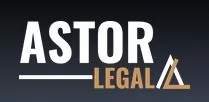Police have made numerous arrests and laid drug charges based on intercepted phone calls in a bid to stem Sydney's crime wave.
Eighteen alleged members of the Alameddine crime network were arrested in gangland raids.
The defendants are all alleged to be low to mid-ranking members of the group.
A number of drug lawyers in Sydney made bail applications which were refused.
Drug Charges Laid
The alleged offenders are all aged between 19 and 39. They were charged with drug supply and the offence of deal with proceeds of crime.
Police explained that the arrests were intended to stop the group's alleged drug distribution network. It is hoped that this will stem the flow of violent offences over the city's drug markets.
These drug supply and possession offences are said to be the cause of increasing gangland violence in Sydney. In the past 18 months 13 people have died as a result of this.
Two of the accused persons were refused bail in Fairfield Local Court on Wednesday due to their potential risk to the community.
A 21-year-old male was charged with supplying cocaine, dealing with more than $3,000 in proceeds of crime and possessing a balaclava with intent to commit an indictable offence.
His drug lawyer conceded that they were "extremely serious offences" around working at a "safe house" associated with the Alameddine network. The house is said to have been used for packaging cocaine to on sell.
He was also accused of transporting 1 kilogram of meth to a person in Newcastle. This amount is above the large commercial quantity for drug supply.
Prosecutors argued that the bail application should be refused due to flight concerns. However, the defendant's criminal defence lawyers argued that this was impossible as he had made very little money and was "still living with his mother in a rental and given pocket money every couple of days."
Bail Application Refused
Magistrate Walsh said police would rely on phone intercepts, electronic surveillance, physical surveillance and the movement of cars as part of their case.
Several others were also charged with various drug supply, participate in criminal group and proceeds of crime offences.
The prosecution said their case was strong and would rely on a number of telephone intercepts between alleged members of the crime network between July and October last year.
The magistrate said that he had no confidence that the accused would observe any bail conditions imposed on him. In making this decision, His Honour noted his criminal record which included charges of intimidating a police officer and taking drugs into a place of detention.
"There is real concern about the commission of further serious offences," he said.
While the release application was refused in the local court, as further Supreme Court bail application can be made.
Serious Drug Supply Charges
Two other members of the network are facing more serious charges. These include an offence of supply prohibited drug in relation to 2.5 litres of Gamma butyrolactone (GBL) and 251 grams of cocaine as well as knowingly or recklessly directing the criminal group.
Police will also allege that a diamond encrusted Rolex watch they seized was the proceeds of crime.
Guns, drugs, cash and 36 encrypted mobile phones were seized during the 29 search warrants executed by Strike Force Sugarcane, which has led an investigation for almost a year.
Detective Chief Inspector Darren Bennett said that drug operations were the "root cause" of the gangland violence.
"We're not saying it's over now because it's impossible to say that, but what we're going to do is work hard on these people until they get the message that sort of violence is not acceptable," he said.
Drug Charges in Sydney
Section 25(1) of the Drug Misuse and Trafficking Act 1985 (NSW) sets out that if you knowingly took part in the process of supplying, or agreeing to supply a prohibited drug, you can be guilty of an offence.
You can fight a supply prohibited drug charge in two ways. Firstly, the prosecution must prove beyond reasonable doubt:
- You engaged in the supply of a substance, OR
- Knowingly took part in the supply of a substance; AND
- That substance was a prohibited drug, OR
- You believed, or led the recipient to believe that it was a prohibited drug
If any of these elements are not made out, then you can be found 'not guilty'.
Drug supply charges are taken very seriously by the Courts. The maximum penalties reflect the very high likelihood of jail.
Despite this there have been a number of recent examples of these charges being dismissed after an accused person retains experienced criminal defence lawyers. You can read about them by clicking here.
Having leading drug lawyers will go a long way towards beating these charges. Call Astor Legal on (02) 7804 2823. Or, you can email info@astorlegal.com.au.
One of the below defences to supply prohibited drug charges may also apply:
- You weren't aware that you possessed the drug
- Carey defence:You were holding the drug on behalf of another person and intended to give it back to that person (Carey (1990) 50 A Crim R 163)
- The substance was not a prohibited drug, AND you did not believe, nor did you hold it out as a prohibited drug
- The prohibited drug was for your personal use only
- Illegal search:If Police found the drug due to an unlawful search. This may be due to Police not having reasonable grounds to search you, or any warrant(s) they have used being improper or defective
- You were not involved in any steps of the supply
- No supply has taken place and you had no intention to supply
- Duress:You were forced to commit the drug supply
The maximum penalties for supply prohibited drug charges are based on the quantity of the drug.
For any amount less than the indictable quantity, the maximum penalty for drug supply is 15 years imprisonment and/or a fine of $220,000.
However, if the case is dealt with in the Local Court, these penalties are reduced to 2 years jail and/or a fine of $5,500.
For a commercial quantity drug supply, the maximum penalty becomes 20 years jail and/or a fine of $385,000.
At the top of the range, for large commercial quantity drug supply, the maximum penalty is life imprisonment and/or a fine of $550,000.
The content of this article is intended to provide a general guide to the subject matter. Specialist advice should be sought about your specific circumstances.

